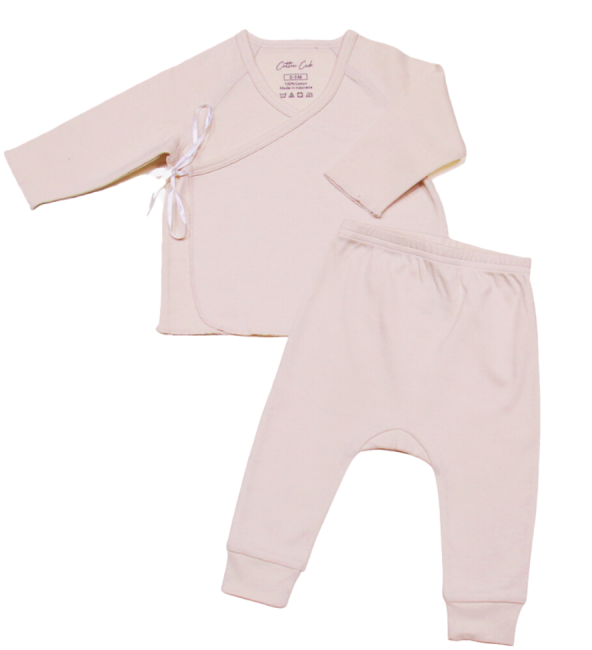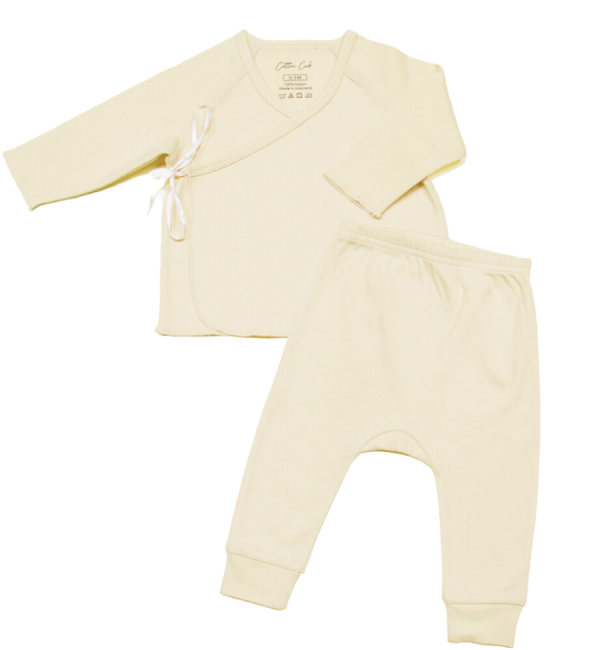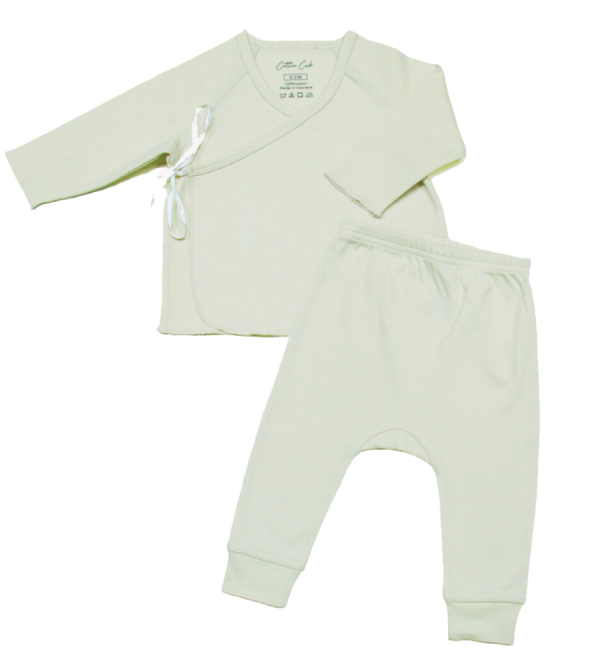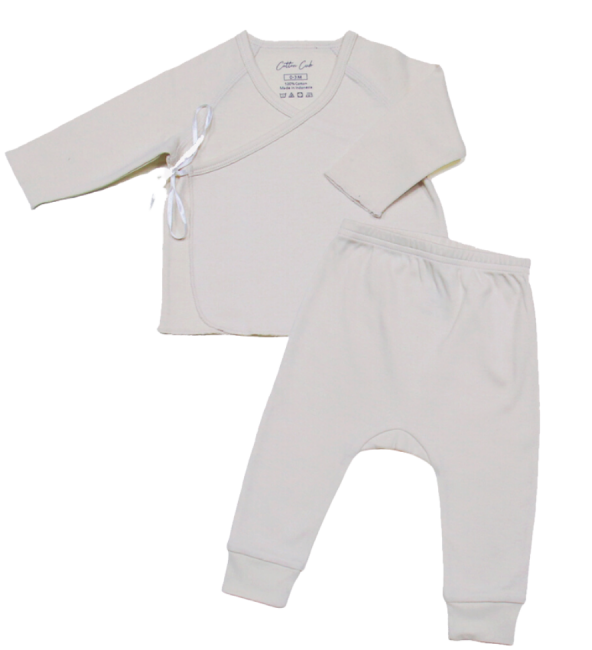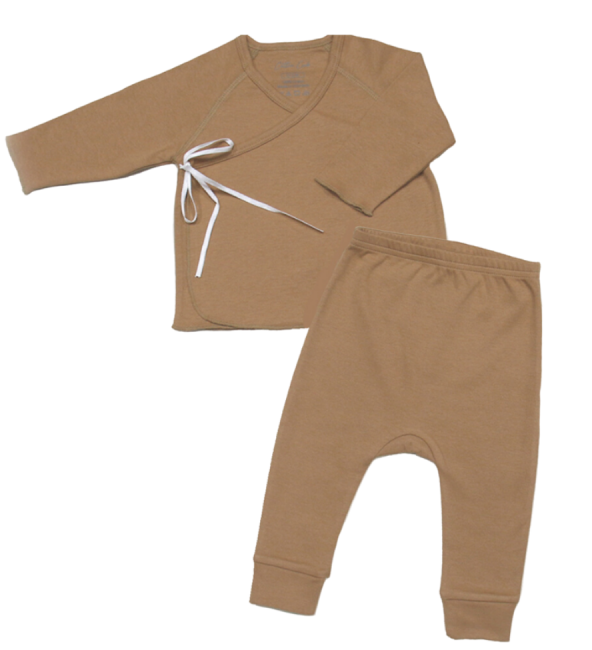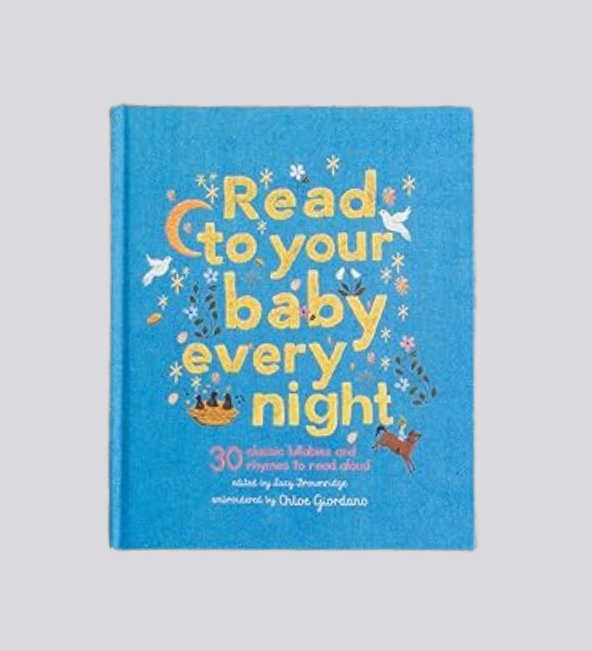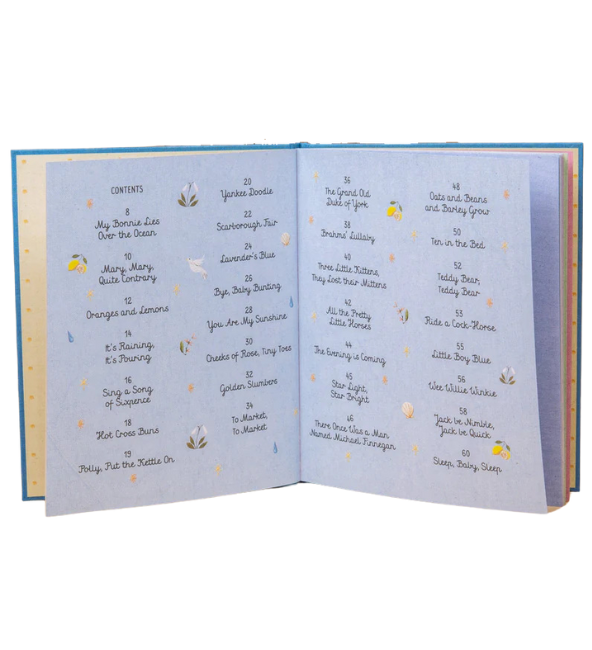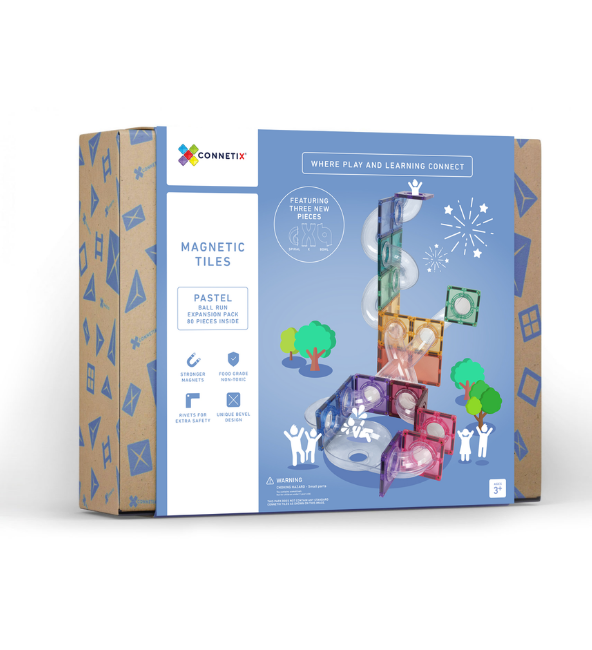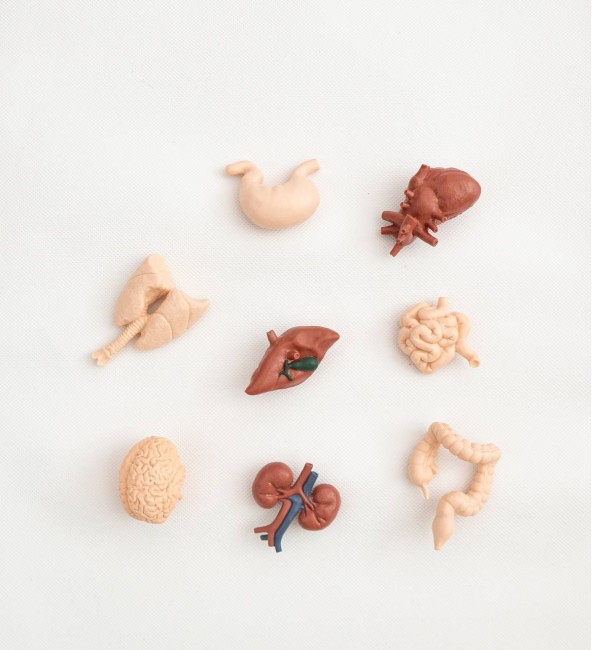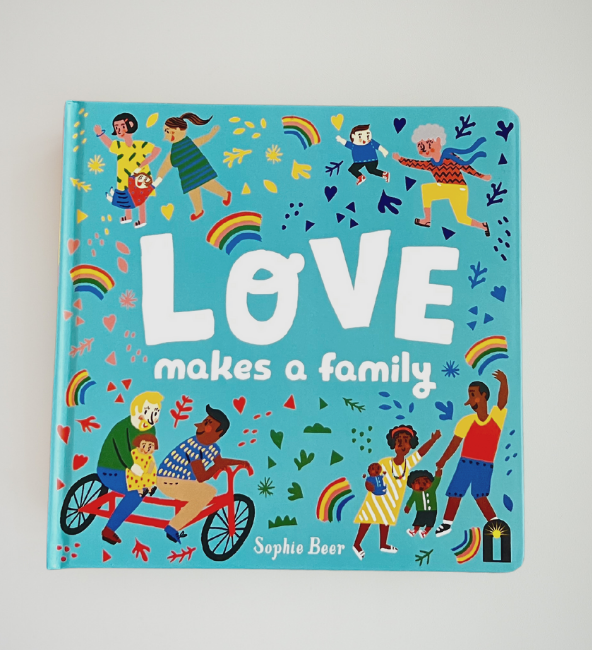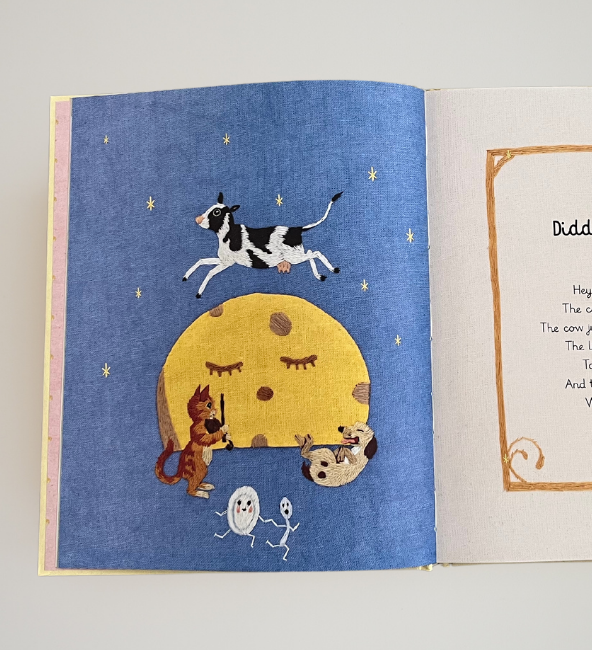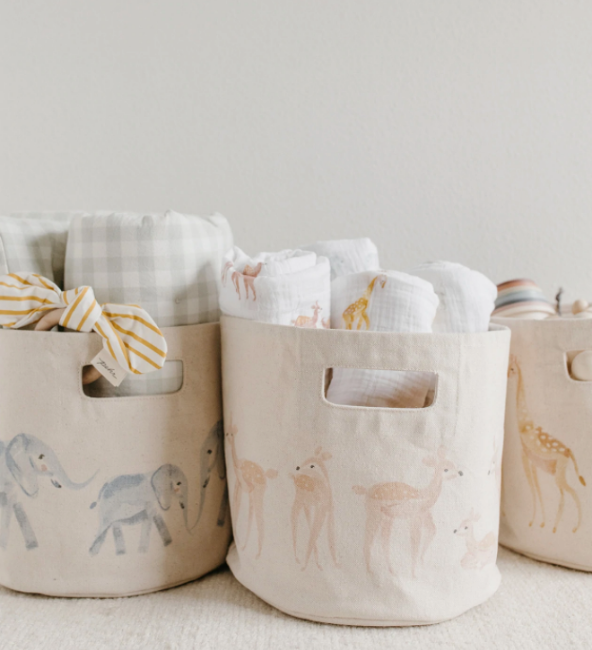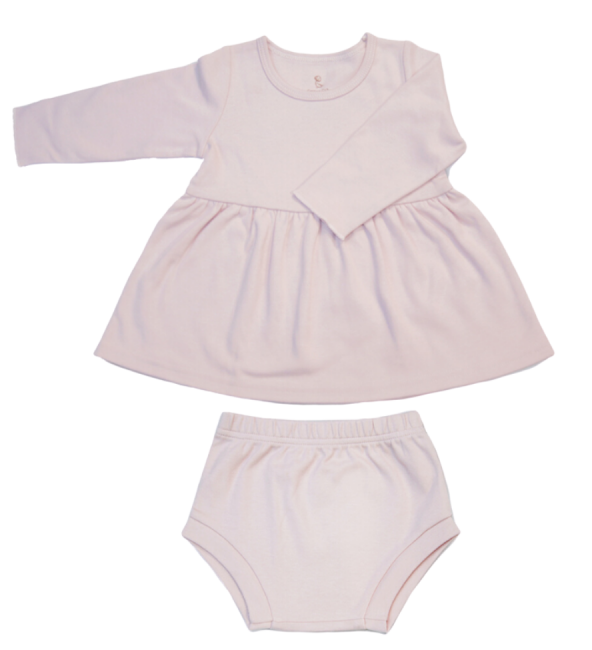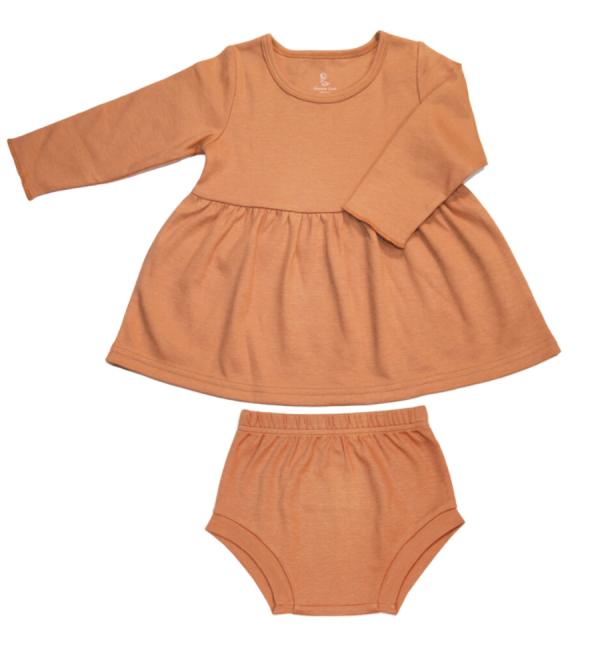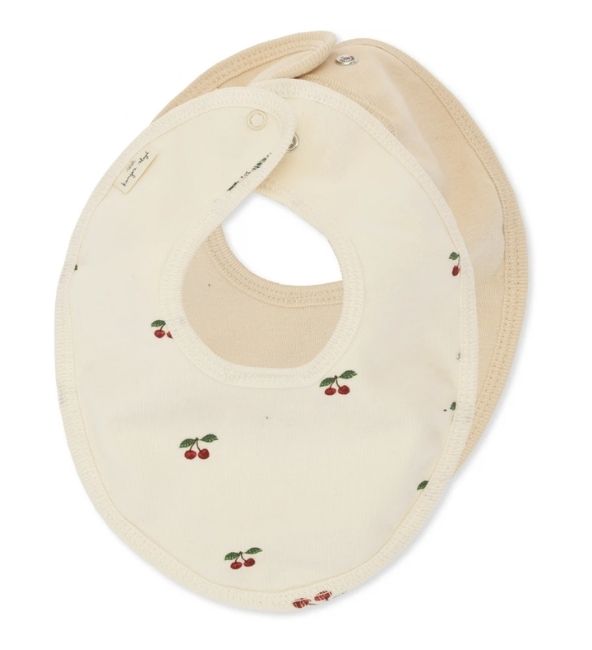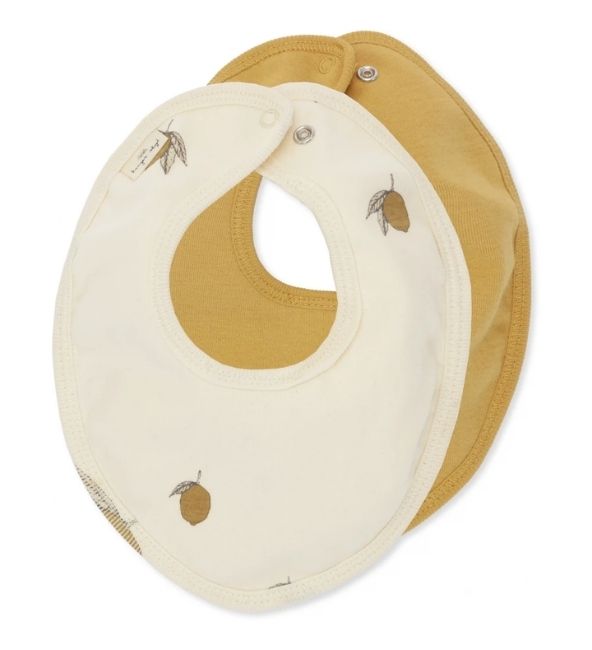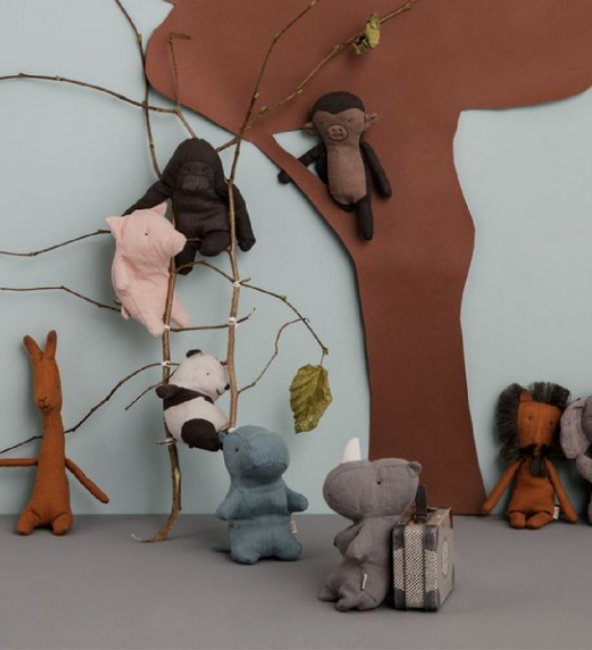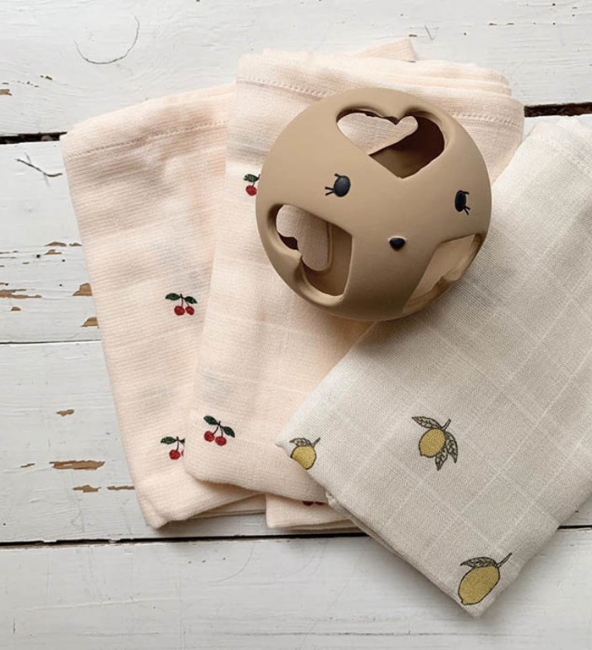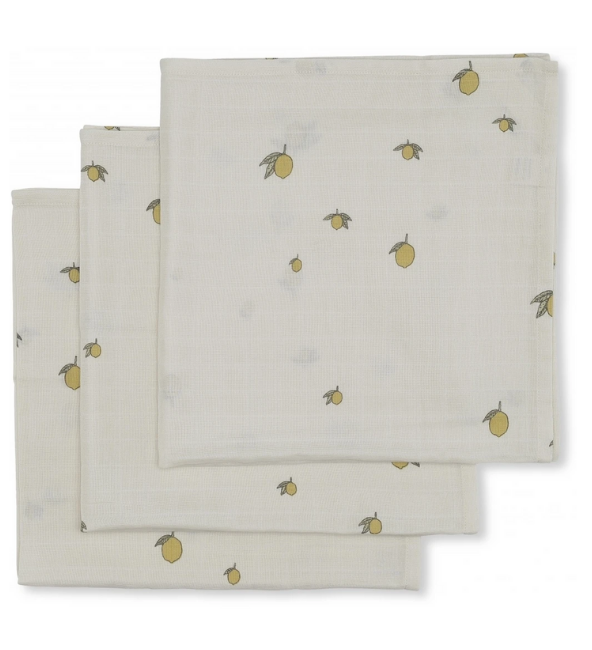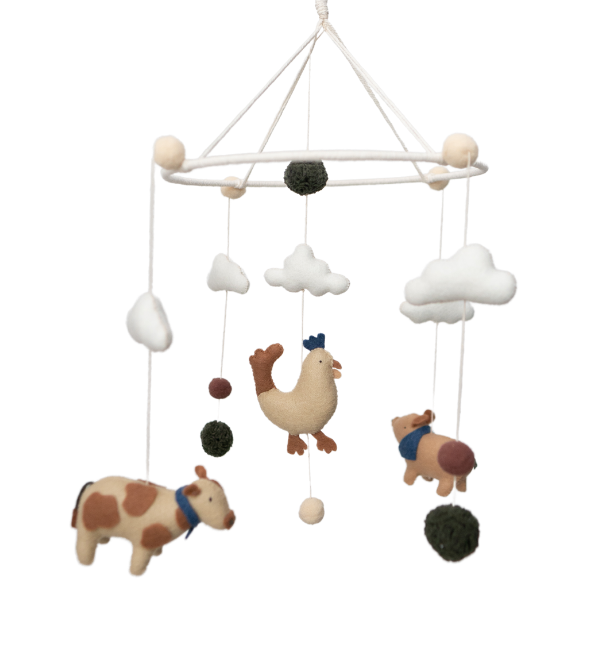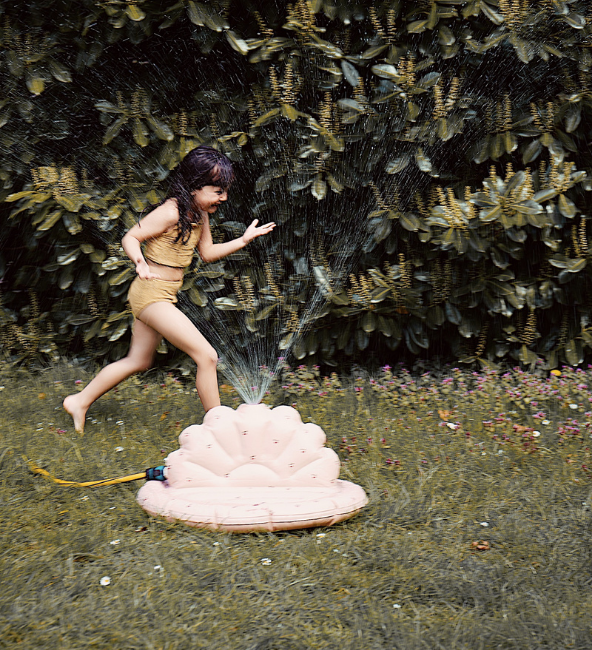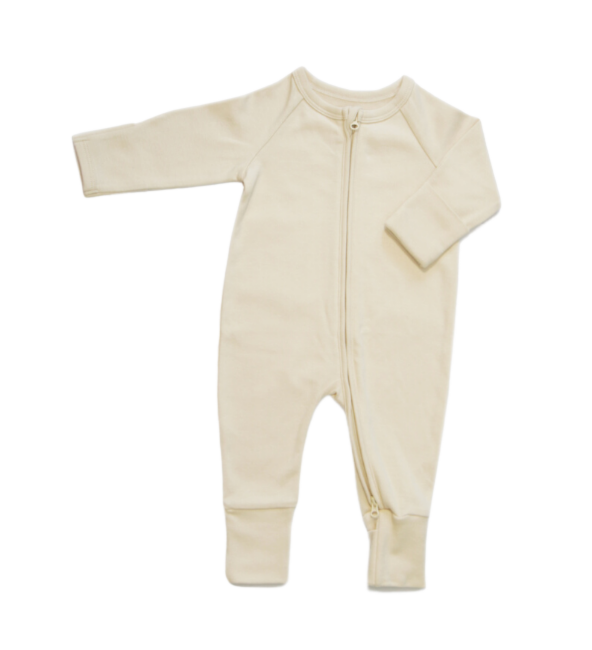Baby
- $29.00
- $24.65
Sustainable baby wear. Modern basics at its finest. Luxuriously soft and well-loved by many.
- 100% GOT organic cotton
- Oeko-tex
- bluesign®
- Ethically made
- Close to 0% plastic usage
Sizes: 0-3, 3-6, 6-9, 9-12, 12-18, 18-24
Colour: Brick, Brown, Butter, Blush, Slate, Sage
As shot on @kiminpink
| Age (months) | Baby Height (cm) | Chest (cm) |
|---|---|---|
| 0-3 | 62 | 21.5 |
| 3-6 | 68 | 23 |
| 6-9 | 74 | 24.5 |
| 9-12 | 80 | 26 |
| 12-18 | 86 | 27.5 |
| 18-24 | 92 | 29 |
100% Certified Organic Cotton, 40s COMBED 180gsm. Breathable, buttery soft with motion support.
Label Printing
Natural pigment printing. No color transfer, stretch and wash resistant.
Conventional textiles are treated with chemicals to prevent shrinkage. As our organic baby clothes are chemical-free, we’d suggest washing on a low heat to keep the shape. A 40°C cycle will remove stains and also save energy, which is good for the environment.
Avoid powerful washing machine detergents, as they are packed with harmful chemicals. Not only are these bad for your little ones; they’ll also degrade the fibres and dyes in your organic baby clothes. Opt for a mild, eco-friendly washing detergent. If you previously used a non-eco detergent, put your empty washing machine through a rinse cycle before washing organic garments.
Drying organic baby clothes at a high temperature will also lead to shrinkage, so air dry where possible. If you’re in a rush, run your tumble dryer on an air cycle which uses no heat.
Good for baby
Organic baby clothes are soft, hypoallergenic and free of any nasty chemicals. Babies have a higher ratio of skin surface area to body volume, which means they absorb chemicals easier. Their skin is 30% thinner than adults which means they are especially open to absorbing harmful additives and synthetic chemicals that are often sprayed on large-scale commercially produced fabrics that aren’t of organic origin.
Good for the environment
Conventional cotton is grown with GMO (Genetically Modified Organisms) seeds, insecticides, pesticides that poison people and the environment. Conventionally grown cotton crop has high energy and water consumption. The soil quality is destroyed due to non-organic farming methods. Higher levels of CO2 is released in the atmosphere. It is believed that nearly 20% of all water pollution comes from making non-organic clothing and 25-77 million agricultural workers suffer due to pesticide poisoning.











